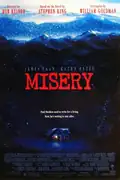Where to watch
Soon at your home
A sci-fi author copes with lost love and finds solace in art.
Trailer
Why watch the movie 2046?
Hint: In a race across the US heartland, a red car discovers the true meaning of friendship.

Think you can guess today's movie? 🤔

One hint, 6 chances, and a new movie to guess every day
Several women enter a science fiction author's life over the course of a few years, after the author has lost the woman he considers his one true love.










"The last part in Wong Kar-wai's unofficial trilogy, alongside 'Days of Being Wild' and 'In the Mood for Love'. If the latter is about the unfulfilled temptation of a love within reach in an era where time seemed immutable, '2046' is about regret, the impossibility of returning and reclaiming what was let go, with the catharsis of artistic creation as the only solace. An ode to heartbreak and loneliness as melancholic as it is visually extravagant."